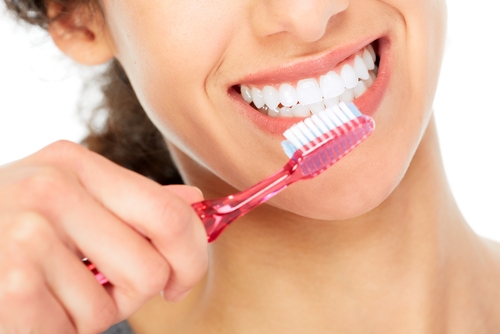How often do you notice your tongue? You use it everyday – to speak and to eat – but are you taking care of it?
Without proper dental hygiene, your tongue can develop some conditions that can lead to much worse health problems in the future.
Tongue Conditions
If you were to go to a mirror and look at your tongue right now, what would you see? Does it look healthy or are you concerned about something? Let’s take a look at some tongue conditions and what they mean for your health.
Bald Tongue
Your tongue is covered in small bumps called papillae. Inside each papillae are your tastebuds. Occasionally, cases of “bald tongue” develop, in which the papillae die and shed off your tongue, leaving it slick. There are a lot of causes to this condition, including vitamin deficiencies and anemia. To diagnose the cause, it is best to talk with your doctor.
Red (Or Strawberry) Tongue
Does your tongue look like you just ate a cherry popsicle all of the time? If so, you may have a vitamin deficiency – either lacking iron or B12. This can be more common for vegetarians, as B12 is found in meat. Talk to your doctor about getting supplements if needed.
“Geographic” Tongue
This condition is called geographic tongue because it often resembles a map. You can identify this if you have red spots on your tongue, possibly outlined in white. The cause of this condition is unknown, but it has been associated with diabetes, anaemia, atopy, and stress. If it does not go away after 2 weeks of brushing consistently, you should talk to your dentist immediately.
Dark Fuzz
There’s no doubt about it, this condition can be the most frightening to look at. If thick, dark hair of fuzz develops on your tongue, it is caused by overgrown papillae. Poor oral hygiene – such as drinking, smoking, or lack of daily care – can lead to this by allowing bacteria to grow at a substantial rate. While it isn’t a major health risk, it could turn into one if it’s not addressed. The best way to get your tongue back to normal is to care for it – and your teeth – properly.
White-Colored Tongue
If your tongue seems to have a white coating of some kind, it could mean one of these three things:
- Leukoplakia – When you have leukoplakia, your cells grow excessively. Generally, this condition can develop when the mouth becomes irritated. Many people who use tobacco products are at risk of developing leukoplakia. If not dealt with, it can become a precursor to oral cancer. Talk to your dentist if you notice white patches on your tongue and inside your mouth.
- Oral Thrush – Oral thrush is caused by a yeast infection inside your mouth. Your tongue may look similar to cottage cheese. Often this can be caused by antibiotics – as they kill bacteria, it allows yeast to develop. Talk to your doctor or dentist for options to get rid of oral thrush.
- Oral Lichen Planus – This condition often looks almost like lace on your tongue, with raised white lines. The cause is unknown, but most of the time this condition goes away on its own.
Wrinkles/Cracks
Believe it or not, your tongue actually shows signs of age, too. If you notice more wrinkles and cracks on your tongue as you get older, that’s normal. While cracks are typically harmless, you always need to be careful to keep your tongue and mouth clean. That includes brushing your tongue diligently!
Persistent Red Lesions
If you notice a small, red bump in your mouth that either doesn’t go away, or persistently comes back, it may be a sign of tongue cancer. Some people mistake them for canker sores that leave after about 2 weeks. If you notice a bump like that, talk to your dentist as soon as possible.
Other Things That Cause Sore or Bumpy Tongue…
- Canker Sores
- Diabetes/Anemia
- Enlarged Papillae
- Oral Cancer
- Smoking
- Trauma
Preventing Tongue Problems
The solution to preventing all of the conditions above is fairly straightforward: Keep good oral hygiene habits. That’s not to say that some conditions can’t develop even when you do take care of your mouth, but you will certainly be better off than if you don’t. Take a look at the short list of habits you should be doing regularly:
- Abstaining from excessive drinking or tobacco use
- Brushing (your teeth and tongue) twice a day
- Flossing once a day
- Visiting the dentist twice a year
If you have one of the conditions above, we highly suggest keeping an eye on it, while implementing good oral hygiene habits. It’s also a good idea to talk to your dentist about it, especially if the condition could develop into a more serious health risk.





